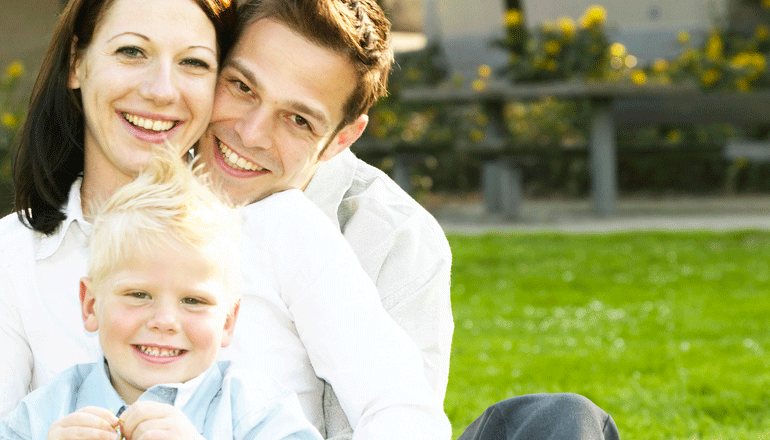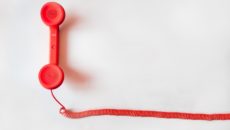A Mother Asks Our Adult Adoptee Panel:
My 5-year-old son has blond hair and a much fairer complexion than either my husband or I. We routinely hear questions or comments, such as “Where did he get that blond hair?” and “He sure doesn’t look like you (or your husband).” (On the other hand, to our great surprise, someone will occasionally tell one of us that our son looks just like us!) Although these questions and comments are not new, our son just started asking about adoption and is listening more intently to our answers. We wonder whether openly acknowledging his adoption to those who ask is likely to affect his self-esteem. Could you comment on how you felt as a child when you heard such questions, how your parents responded, and how you felt about their responses?
An Adoptee in Her 40’s in New Jersey
The discrepancy between my appearance and the ethnicity of my surname has inspired comments my whole life. Occasionally a stranger or acquaintance would also comment on my being the only member of our family with blue eyes. I think my parents set an excellent example of flexible responses. To total strangers who exclaimed, “Where did you get those eyes?” my mother might laugh and say, “recessive gene.” She would later wink at me and point out it was the truth. But people who knew my parents for any length of time also knew we were adopted and their questions were answered differently, such as, “We know her background is Irish, so the eyes probably come from that.” I learned only as an adult that they worried about stigmatizing me by being so open about our adoptions. At the time, what I noticed was that they never acted as though adoption were something to keep a secret.
As time went on I took a more active role in answering those questions too, depending on my mood. My mother still laughs about the time after church when someone commented on my last name not matching my looks, and I replied simply, “Well, I’m not related to my father.”
Nosy questions are a fact of life and most adoptees I know become fairly adept at deciding, on the spot, how much or little information to share. I don’t think it’s necessary to bring up adoption to just anyone who asks, but by modeling responses that are appropriate in different situations, you can set the stage for the day when he can answer the questions himself.
An Adoptee in Her 30’s in Florida
While I knew I was adopted, we didn’t talk about it much while I was growing up. My parents’ approach to the outside world was to pretend that I was not adopted. This made me anxious because I was always afraid that someone would find out and I would have to explain. The fact that my adoptive parents are Jewish and have dark curly hair, brown eyes, and olive complexions while I am of Scandinavian descent and have blonde hair, blue eyes, and fair skin, complicated my feelings.
Even though we didn’t look alike, people often commented on how similar my parents and I were in other ways. My father would react to such comments by winking at me as though we were sharing a sweet and delicious secret. That felt good; we were in on the secret together. Unfortunately, the secrecy also made me feel as though I were strange, somehow not quite as good as a child born into a family. As an adult I realized my parents were trying to protect me from the negative adoption attitudes of others. Unfortunately, the strategy backfired and made me feel as though I had a dangerous secret which could hurt me if anyone found out.
I wish my parents had given me more information about my adoption and more power over the information. I wish they had done more to reassure me that, although our family was different, it was a good family. Like most kids, I had a great need to belong and fit in.
It would have helped me to practice responses to these questions together and to discuss which answers work the best. This would have had the added effect of drawing us closer as a family, to share this important family responsibility. Together we could have rehearsed responses such as, “We may not look alike, but we have the same sense of humor.” Or responding noncommittally with a question, “Do you think so?” or “Why do you ask?”
An Adoptee in Her 40’s in Minnesota
As the blond hair, brown-eyed daughter of parents who both had brown hair and blue eyes, I heard many such comments while growing up. Oddly enough, I looked even less like my brother, also adopted, but few people ever commented on how different we looked from one another.
While my parents were very open with us about our adoptions, they did not feel that disclosing this private information to strangers was appropriate. They generally responded to questions or comments in a light-hearted manner. For example, when someone asked, “How did she end up with blond hair?” they’d wink at me and say, “Just lucky, I guess.” Perhaps because my parents never seemed uncomfortable or embarrassed, such comments did not bother me, nor were they an issue for me while growing up. I never gave a second thought to the answers they gave, nor did I view their lack of disclosure as indication that they didn’t think adoption was a good thing.
I don’t think parents should feel compelled to disclose private information, nor should they worry that protecting their child’s privacy will send him or her a negative message. Just because something is “good” doesn’t mean it’s appropriate to talk about it. For example, I tell my own children that doing well in school is good, but don’t go around telling everyong how well we’re doing.
I also think parents should keep in mind that people generally do not mean offense when they ask questions that are intrusive. Just the other day at the park, I saw a little boy with a head full of bouncy, golden-blond curls. Without thinking, I asked his mother, “Where did he get those curls?” She hesitated a moment before stammering, “He’s adopted.” Her obvious discomfort made me want to bite my tongue for not thinking before speaking. “I was, too,” I told her quickly. “And I wasn’t trying to be nosy. His curls are just so striking.”
“How I look may not come from my father, but how I act does.”
An excerpt from ITHAKA: A Daughter’s Memoir of Being Found (http://www.saffian.com), by Sarah Saffian, a 31-year-old adoptee who was contacted by her birth family (mother and father and three full siblings). Sarah is also an editorial advisory board member of Adoptive Families.
One day in 1995, I took my watch to a little repair shop a couple of blocks from my office. The store was owned by a kindly, elderly, Jewish man, all thick glasses and knotted hands, who stood stooped behind the counter, tinkering, chattering. At one point, he looked up at me and asked with a smile, “Where did you get those dimples, eh?” I just laughed softly, taking in the compliment, but not answering his question.
I was used to this sort of observation, had been confronted with it all my life, and usually responded in this way, demurely brushing it off. My father sometimes even played up our physical resemblances, ungrounded though they were. “She has broad shoulders, like her father,” he would point out. Sometimes an announcement like this wasn’t even for another’s benefit, but just for our own: “Unfortunately, you have inherited the Saffian stomach,” he would groan if I complained after a spicy meal or a stressful day. I had always been comforted by these comments, and didn’t consider them a charade, knowing no other benefactor for my physique or delicate constitution. Since being contacted by my birth parents, though, the tie to my father hadn’t slackened, but it had become less automatic. While I now knew that he couldn’t have given me his actual shoulders, he could have given me his posture, his carriage, his gait, the way clothes hung on his frame, which mine happened to resemble. And these traits, whether inherited or acquired, were equally important.
But the old jeweler, not knowing my situation, repeated his question. “Where did you get your dimples, your mother or your father?”
“I don’t know,” I finally answered, truthfully.
I had a similar encounter a few weeks later, when meeting my father for lunch. When he introduced me as his eldest daughter to the new receptionist at his office, she was astonished. “You are? You don’t look anything alike!” At first I thought she was simply making a joke, as she saucily followed up her exclamation with, “I mean, you’re so good-looking, and he’s…” We all chuckled, but then she persisted. “So, you must look more like your mother, then, hm?” I didn’t know how to answer. I quickly catalogued my parents: If comparing me to Nancy [my adoptive mother who had died when I was six], I resembled her more. If comparing me to Kathy [my father’s second wife], I resembled Dad more. And if comparing me to Hannah [my birth mother], I not only resembled her more, but the physical comparison to my father became irrelevant, or at least shifted to a separate category. Which mother, I wanted to ask the receptionist?
I paused, and Dad swept in to respond, “She’s just like me,” encompassing personality as well as appearance. And in many ways he was right.



